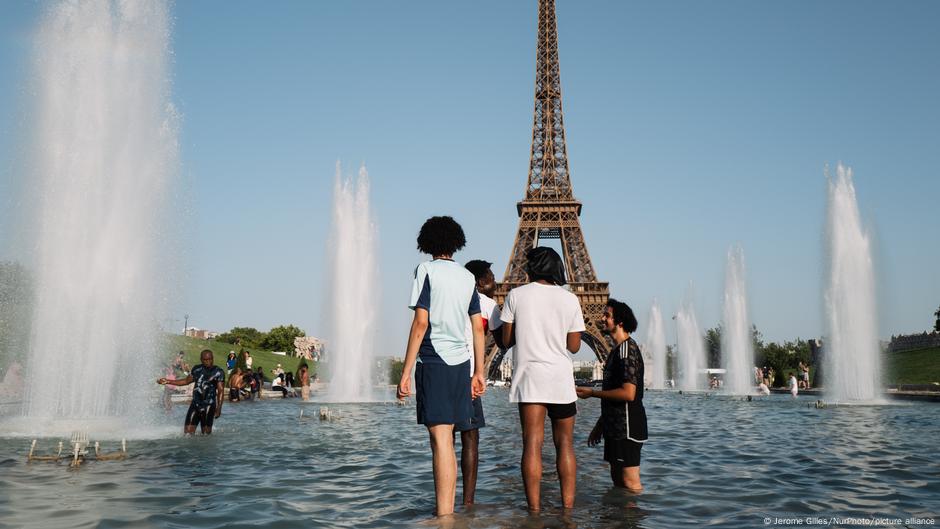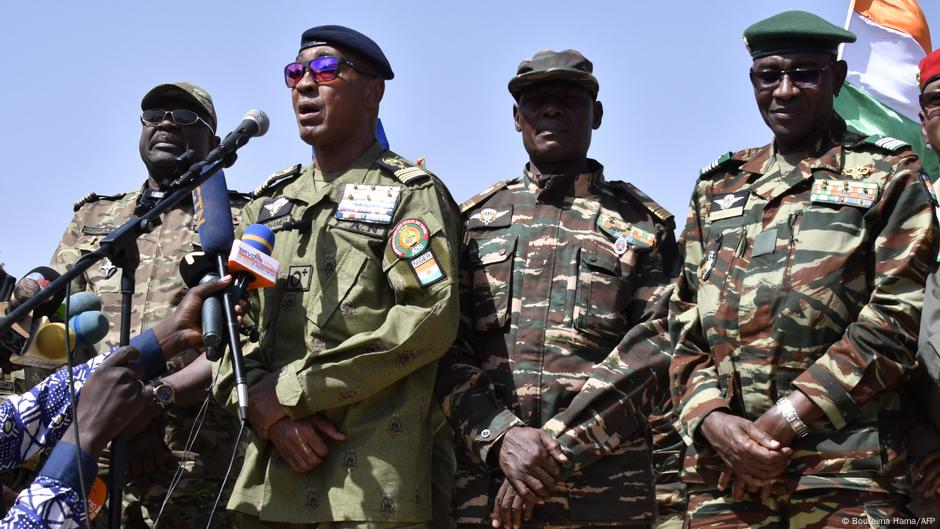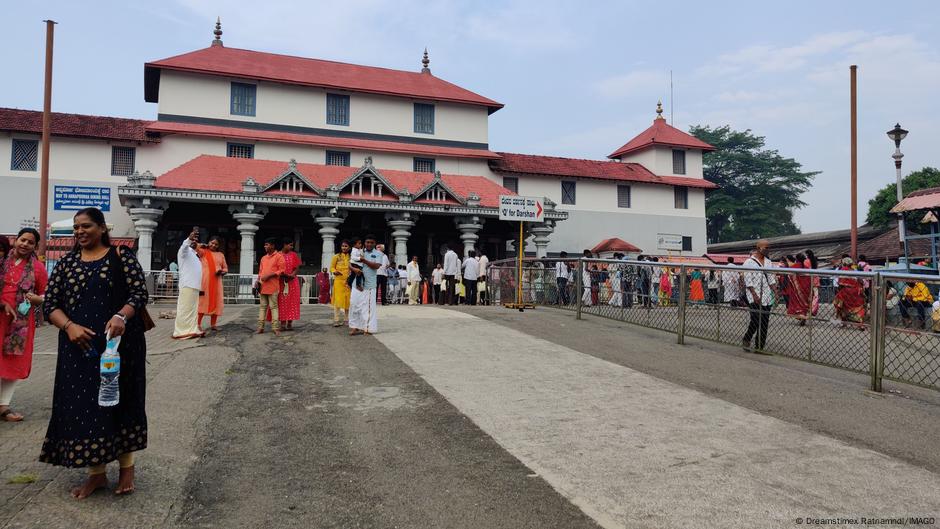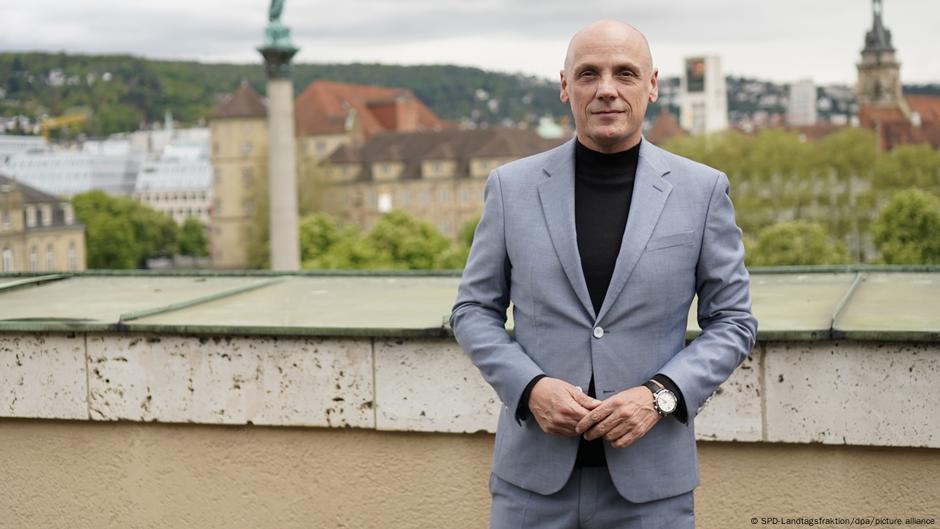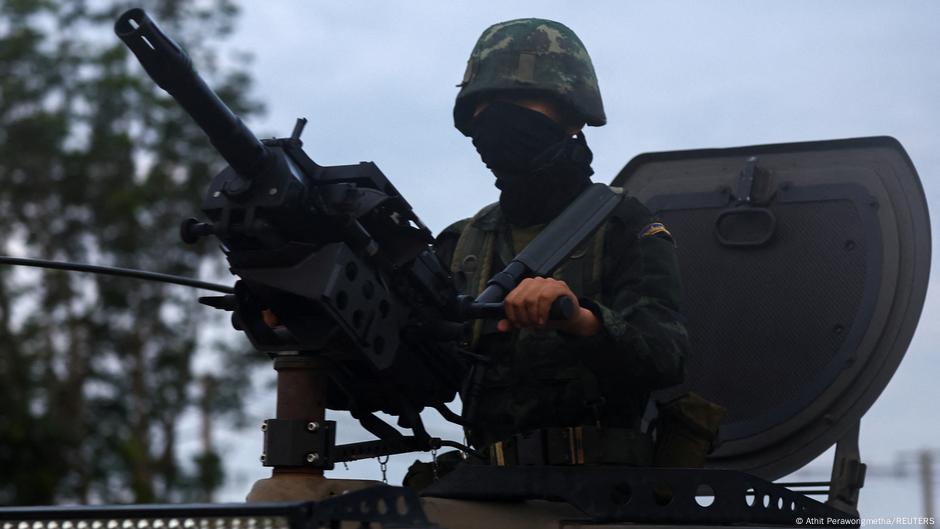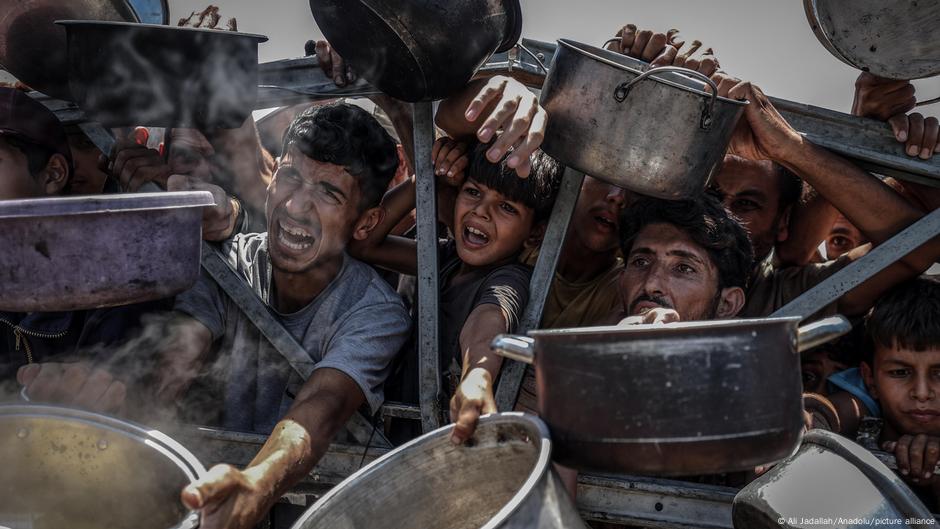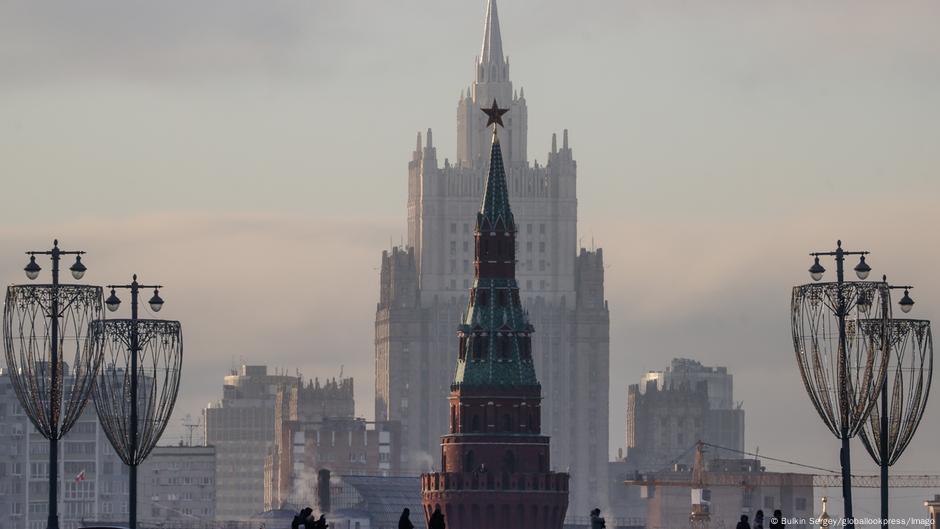The countries’ leaders called the situation a “humanitarian catastrophe” and demanded an immediate ceasefire.
The three said they “stand ready to take further action” to support peace efforts — though they did not specify what steps they might take.
The coordinated statement came after French President Emmanuel Macron announced that France will recognize a Palestinian state.
This blog is a roundup of developments in Israel, Gaza and the wider Middle East on Friday, July 25.
Skip next section Germany, France, UK leaders press Israel on aid07/25/2025July 25, 2025
Germany, France, UK leaders press Israel on aid
Leaders of Britain, France and Germany have called on Israel to allow unrestricted humanitarian aid into Gaza, warning of a “humanitarian catastrophe.”
The joint appeal comes after French President Emmanuel Macron pledged to recognize a Palestinian state and followed a call between Macron, British Prime Minister Keir Starmer and German Chancellor Friedrich Merz.
In it, they demanded an immediate ceasefire and warned that “withholding essential humanitarian assistance” is unacceptable — though the statement broke no new diplomatic ground.
The three leaders said they are ready to take further action to support both a ceasefire and a political process toward lasting security and peace in the region, but did not specify what steps they might take.
Macron’s announcement has revealed divisions among the European trio — known as the E3 — over how to address the humanitarian crisis and bring the Israel-Hamas war to an end.
While all three countries support a Palestinian state in principle, Germany has said it has no immediate plans to follow France’s lead. Macron intends to formalize the recognition at the UN General Assembly in September.
Britain also has not joined the move. On Friday, 221 members of the UK Parliament signed a letter urging recognition.
Germany reluctant to toughen stance toward Israel on Gaza
To view this video please enable JavaScript, and consider upgrading to a web browser that supports HTML5 video
https://p.dw.com/p/4y3YISkip next section Trump dismisses France’s intention to recognize Palestine as a state07/25/2025July 25, 2025
Trump dismisses France’s intention to recognize Palestine as a state
US President Donald Trump has dismissed the decision by France’s Emmanuel Macron to recognize a Palestinian state as pointless.
“What he says doesn’t matter,” Trump told reporters at the White House. “He’s a very good guy, I like him, but that statement doesn’t carry weight.” Trump told reporters
Trump’s response came after the French president’s announcement yesterday that his country planned to formally recognize the State of Palestine in September at the UN General Assembly.
https://p.dw.com/p/4y391Skip next section Israeli to allow foreign aid drops over Gaza, reports say07/25/2025July 25, 2025
Israeli to allow foreign aid drops over Gaza, reports say
Israel will once again allow foreign aid to drop over Gaza, sources told media outlets on Friday, as pressure on Israel mounts to end the hunger crisis in the besieged enclave.
“Humanitarian aid air drops on the Gaza Strip will resume in the upcoming days. They will be managed by the UAE and Jordan,” an unnamed Israeli official told the French AFP news agency.
The Israeli army radio also reported the news, with an unnamed military official suggesting air drops could start as early as Friday.
https://p.dw.com/p/4y2xbSkip next section Why has France decided to recognize Palestine as a state now? 07/25/2025July 25, 2025
Why has France decided to recognize Palestine as a state now?
Anchal Vohra in Brussels
DW spoke to several regional experts to find out why France is now moving to recognize Palestinian statehood.
France has traditionally played a diplomatic role in the Middle East. But as Donald Trump has increasingly sidelined Europe, France has been pushing for Europe to take a more independent position from the US on the international stage.
As well as the worsening humanitarian crisis in Gaza, calls from some members of the Israeli Knesset to annex the West Bank have also increased the pressure.
Michael Stephens, a Senior Associate Fellow at the UK-based RUSI think tank, told DW there was concern that if a Palestinian state isn’t recognized now, “there may not be a Palestine left to recognize.”
France, along with Saudi Arabia, had been planning to co-host a UN conference on the two-state solution, hoping to encourage European states to recognize Palestine, and for some Arab states to normalize relations with Israel.
The conference is now set to start on Monday after strikes by Israel and the US forced it to be rescheduled.
Hugh Lovatt, a senior policy fellow with the Middle East and North Africa Programme at the European Council on Foreign Relations (ECFR), told DW that French President Emmanuel Macron’s comments are intended to build momentum for more European countries to recognize Palestine before the United Nations General Assembly in September.
“What the French are doing is they are giving other countries effectively two months to also come on board,” Lovatt said.
Quentin de Pimodan, international adviser at Greece-based Research Institute for Europeans and American Studies, said Macron is aiming to present a “common front” for a political solution ahead of the UN assembly.
https://p.dw.com/p/4y2gSSkip next section Gaza ceasefire negotiations to resume next week, reports say07/25/2025July 25, 2025
Gaza ceasefire negotiations to resume next week, reports say
Hamas and Egyptian sources suggested on Friday that negotiations on a ceasefire in Gaza would resume next week, while Israeli Prime Minister Benjamin Netanyahu yet again accused Hamas of being the “obstacle” to a hostage release deal.
“Special Envoy to the Middle East Steve Witkoff got it right. Hamas is the obstacle to a hostage release deal,” Netanyahu said in a statement on X, adding that Israel and the US were “now considering alternative options to bring our hostages home, end Hamas’s terror rule, and secure lasting peace for Israel and our region.”
Both Netanyahu and US President Donald Trump recalled their negotiating teams from Qatar, where talks were being held earlier this week.
Trump’s special envoy Steve Witkoff said Hamas’ latest response to the negotiations showed a “lack of desire” for a truce.
Meanwhile, Hamas official Bassem Naim was cited by the Associated Press news agency as saying on Friday he was told an Israeli delegation would depart for talks early next week.
An-unnamed Egyptian source also told the state-affiliated Al Qahera News TV that talks will resume next week. Egypt and Qatar have been mediating a ceasefire throughout the 22-month war.
https://p.dw.com/p/4y2UmSkip next section France’s top court annuls arrest warrant against Syria’s Assad07/25/2025July 25, 2025
France’s top court annuls arrest warrant against Syria’s Assad
Kalika Mehta with AFP | Wesley Dockery
France’s highest court on Friday annulled a French arrest warrant, issued before his ouster, against Syria’s ex-president Bashar Assad over deadly 2013 chemical attacks.
The Court of Cassation ruled there were no exceptions to presidential immunity, even for alleged war crimes and crimes against humanity.
Vezi mai multe știri aici
However, presiding judge, Christophe Soulard, added that, as Assad was now no longer president after he was toppled in December, “new arrest warrants can have been, or can be, issued against him” and as such the investigation into the case could continue.
https://p.dw.com/p/4y2xWSkip next section Iran held ‘frank, detailed’ nuclear talks with E3 bloc, diplomat says07/25/2025July 25, 2025
Iran held ‘frank, detailed’ nuclear talks with E3 bloc, diplomat says
Iran has held “frank and detailed” nuclear talks with Germany, France and Britain on last month’s war with Israel, a senior Iranian diplomat said on Friday.
In a post on X, Iran’s deputy Foreign Minister Kazem Gharibabadi said in the talks, Tehran criticized the three countries’ stances regarding the Israel-Iran war, which erupted when Israel struck nuclear and military infrastructure in Iran and killed much of its military brass, sparking strikes on Israel from Iran.
Friday’s talks also discussed the prospect of lifting the sanctions on Iran, as well as the snapback mechanism, which allows the swift reimposition of UN sanctions on Iran under the 2015 nuclear agreement if it violates its nuclear commitments.
“It was agreed that consultations on this matter will continue,” Gharibabadi said.
https://p.dw.com/p/4y2JZSkip next section IAEA ‘encouraged’ by Iran’s permission for inspection visit07/25/2025July 25, 2025
IAEA ‘encouraged’ by Iran’s permission for inspection visit
The United Nations’ nuclear watchdog has expressed optimism regarding Iran’s decision to allow its inspectors to visit the country.
International Atomic Energy Agency chief Rafael Grossi said a visit to Iran could take place “within weeks,” adding that it could pave the way for UN inspectors’ return to the country.
“If we do not return soon, there would be a serious problem, because this is an international obligation of Iran,” Grossi told reporters during a visit to Singapore. “I am encouraged by what I have been hearing from Tehran in the sense that they want to re-engage with us.”
Iran’s Deputy Foreign Minister Kazem Gharibabadi had announced Tehran’s decision earlier this week. The UN delegation will not have access to nuclear sites in the country, Gharibabadi said, adding the visit’s aim would be to reestablish relations between the IAEA and the country.
Iran had suspended its cooperation with the UN agency earlier this year, blaming the IAEA in part for Israeli and US attacks on its nuclear facilities in June.
The nuclear watchdog had issued a resolution saying Tehran was in violation of its non-proliferation obligations, one day before Israel launched its strikes.
https://p.dw.com/p/4y24TSkip next section France defends decision to recognize Palestinian statehood07/25/2025July 25, 2025
France defends decision to recognize Palestinian statehood
After condemnation from the US and Israel, France has defended its decision to recognize Palestinian statehood in September, refuting the argument that it would help the militant group Hamas.
“Hamas has always rejected the two-state solution,” French Foreign Minister Jean-Noel Barrot said on X. “By recognizing Palestine, France is going against that terrorist organization.”
France was “backing the side of peace against the side of war,” Barrot argued.
US and Israeli officials argued that France’s recognition of Palestinian statehood would benefit Hamas, which has welcomed the French plans.
https://p.dw.com/p/4y1VISkip next section Who could follow France in recognizing Palestinian statehood?07/25/2025July 25, 2025
Who could follow France in recognizing Palestinian statehood?
Anchal Vohra in Brussels
DW spoke with Hugh Lovatt, a senior policy fellow with the Middle East and North Africa Programme at the European Council on Foreign Relations (ECFR), about the prospects of other European countries following in France’s footsteps to recognize Palestinian statehood.
Lovatt suggested that Belgium, Denmark, Luxembourg and maybe Portugal could be the next European countries to recognize Palestine as an independent state.
Germany, as one of the staunchest supporters of Israel in the EU, is unlikely to change its position, he added.
“Well, never say never, but I think the Germans have made it very clear that they will be amongst the last to recognize the State of Palestine,” he told DW.
“The German position is they will do so as the outcome of a two-state solution. That is a very distant prospect and I don’t imagine the French move changing that calculation.”
So far, over a dozen European states recognize Palestine as an independent state, including, most recently, Spain, Ireland and Norway.
Lovatt said the most significant nation would be the UK. He said if France could
Sursa: DW

